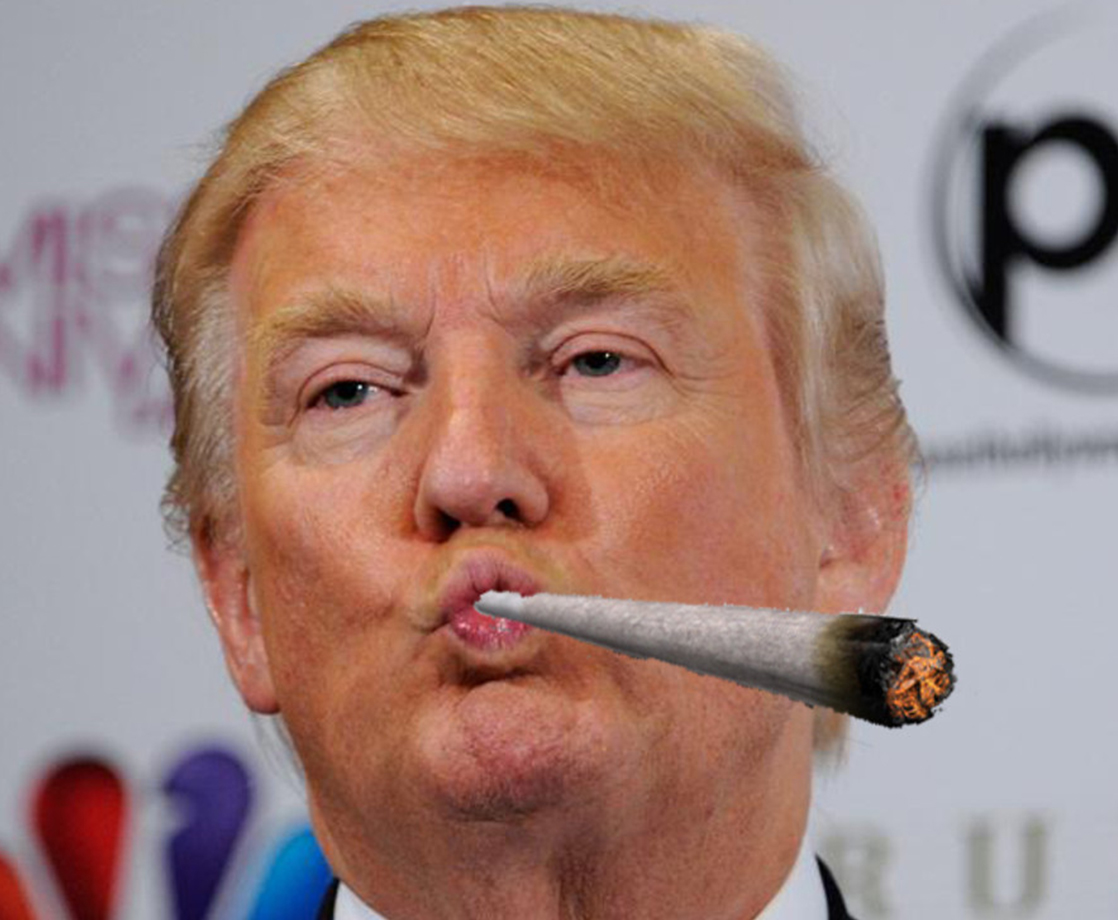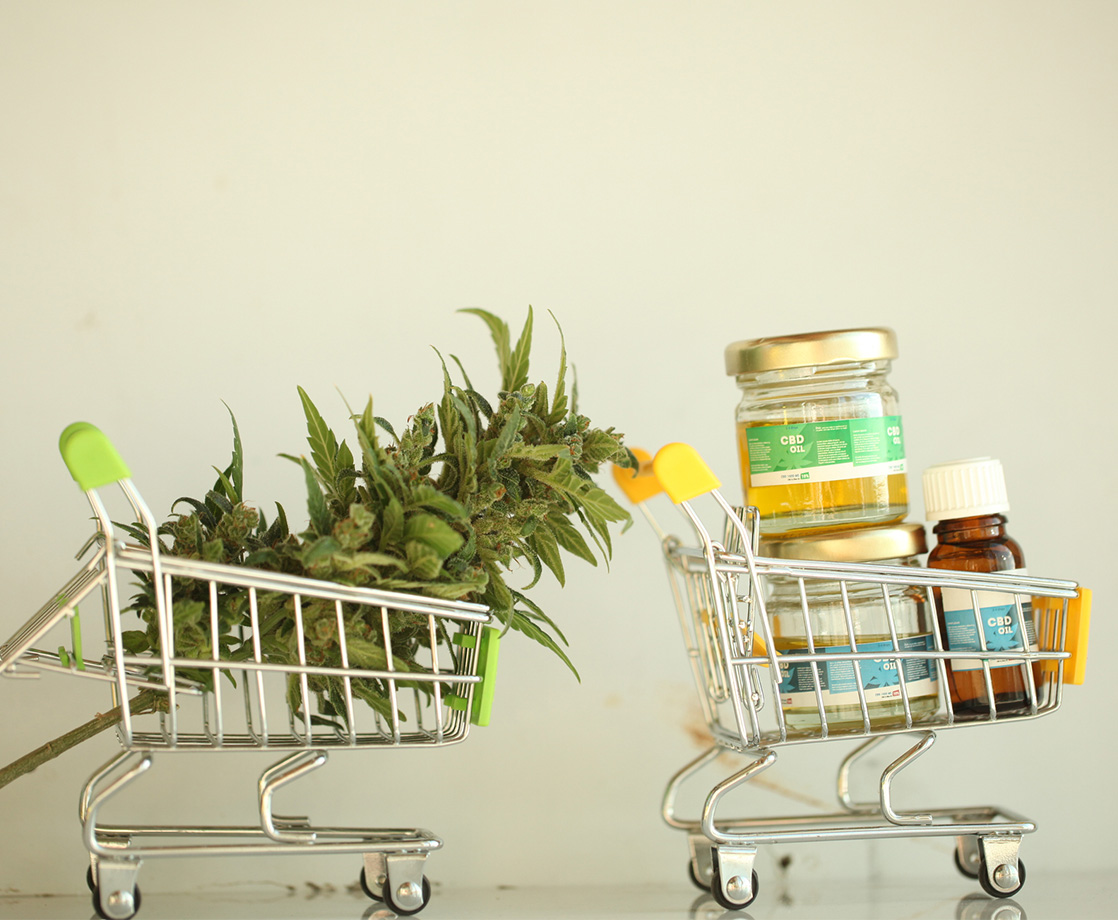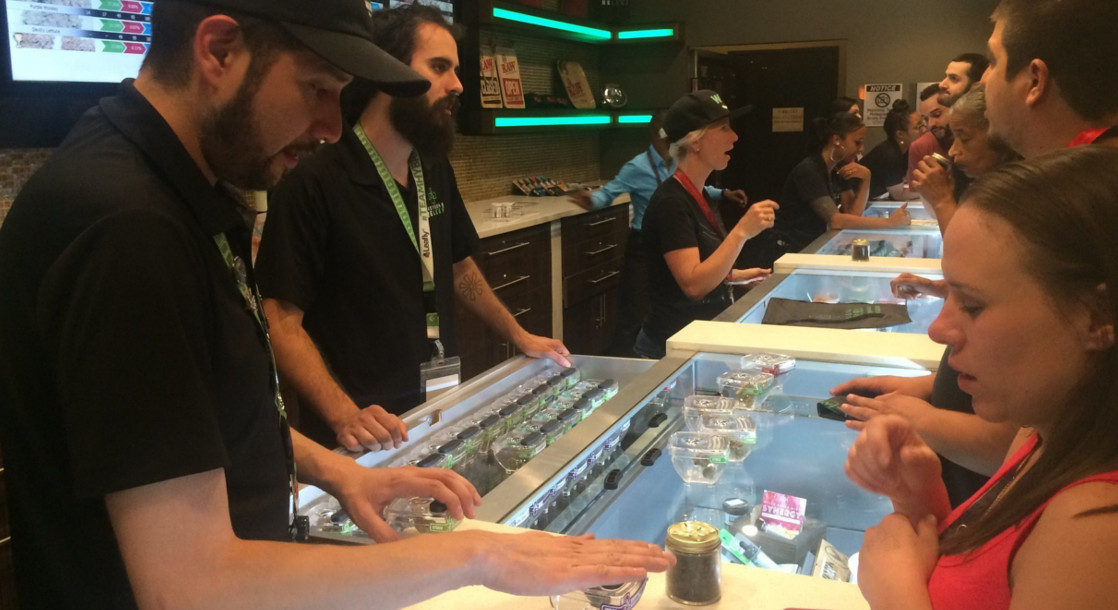Lead image via
Colorado Sen. Cory Gardner has announced that President Trump personally promised him that the federal government will not interfere with his state's cannabis industry. Trump reportedly went as far as promising to support legislation that would protect states' rights to pass their own cannabis laws, in exchange for Gardner's promise to stop interfering with the nomination process for Department of Justice appointees.
During his campaign, President Trump claimed that he supported states' individual rights to enact their own cannabis legalization. But upon taking office, the president nominated hardline cannabis prohibitionist Jeff Sessions as U.S. Attorney General. Under the Obama administration, the cannabis industry had some degree of protection under the Cole Memo, which advised federal prosecutors not to interfere with state-legal marijuana operations.
Sessions rescinded the Cole Memo in January, and urged prosecutors to follow their own discretion in evaluating cannabis offenses. Sen. Gardner responded by announcing that he would block every nominee to the Justice Department until he received assurance that his home state's newly minted cannabis industry was safe from federal intervention. Gardner was unable to extract such a promise from Sessions, but after the Senator held up over 20 nominations to the DoJ, President Trump agreed to support individual states' rights to legalize cannabis.
"Since the campaign, President Trump has consistently supported states' rights to decide for themselves how best to approach marijuana," Gardner said in a statement. "Late Wednesday, I received a commitment from the President that the Department of Justice's rescission of the Cole memo will not impact Colorado's legal marijuana industry. Furthermore, President Trump has assured me that he will support a federalism-based legislative solution to fix this states' rights issue once and for all."
"My colleagues and I are continuing to work diligently on a bipartisan legislative solution that can pass Congress and head to the President's desk to deliver on his campaign position," Gardner added. White House legislative affairs director Marc Short confirmed that Trump "does respect Colorado's right to decide for themselves how to best approach this issue," according to The Washington Post.
"We applaud this commitment from President Trump, who promised during his campaign to take a federalist approach with regard to marijuana policy," NORML Director Erik Altieri said in a statement. "With the president now reiterating this commitment, it is time for Congress to do its part and swiftly move forward bipartisan legislation that explicitly provides states with the authority and autonomy to set their own marijuana policies absent the fear of federal incursion. Doing so would not only follow through one of Trump's campaign promises, but it would codify the will of the overwhelming majority of Americans."
Some cannabis industry insiders are not entirely convinced by the President's promise, however. Cannabis activist Tom Angell tweeted that "this is hugely positive, but it's going to take focused, hard work and pressure to make sure words become reality," Reuters reports. "Let's make him do it."
Drug Policy Alliance policy advisor Mike Liszewski said that "Trump's pledge to Gardner is a significant and potentially game-changing development but it does not necessarily mean that Sessions is no longer a threat to licensed cannabis businesses," although it does make it "even more politically difficult for Sessions to initiate a crackdown."
Two other U.S. Senators are also working to get Sessions to stop interfering with medical cannabis research. Before the recent rush of state-legal cannabis, the only source of cannabis legally available to American researchers came from a single farm at the University of Mississippi. This government-grown cannabis is notoriously poor-quality, however, and quite unlike any weed that one would encounter on the legal or illegal market.
Two years ago, the Drug Enforcement Administration began accepting applications for additional cultivators, which would expand the quality and quantity of cannabis available for medical research. The agency received at least 25 applications, but the Justice Department has reportedly been blocking DEA officials from approving any of these proposals. Last week, Senators Orrin Hatch and Kamala Harris wrote a letter to Sessions urging him to stop interfering with these research efforts.
"The benefits of research are unquestionable," the senators wrote, according to Marijuana Moment. "Ninety-two percent of veterans support federal research on marijuana, and the Department of Veterans' Affairs is aware that many veterans have been using marijuana to manage the pain of their wartime wounds. America's heroes deserve scientifically-based assessments of the substance many of them are already self-administering."











